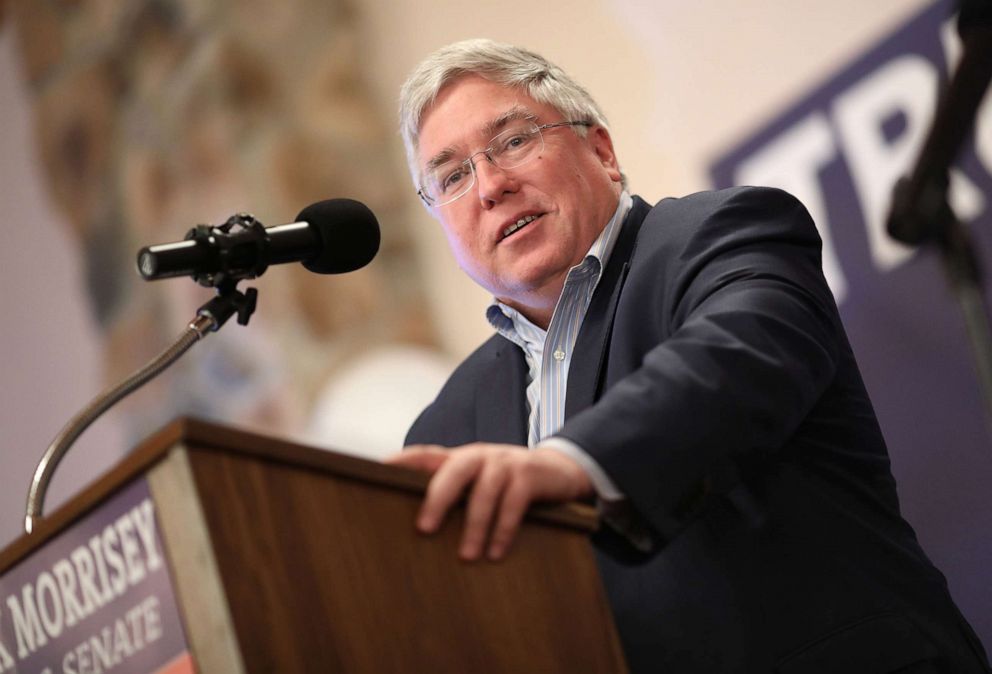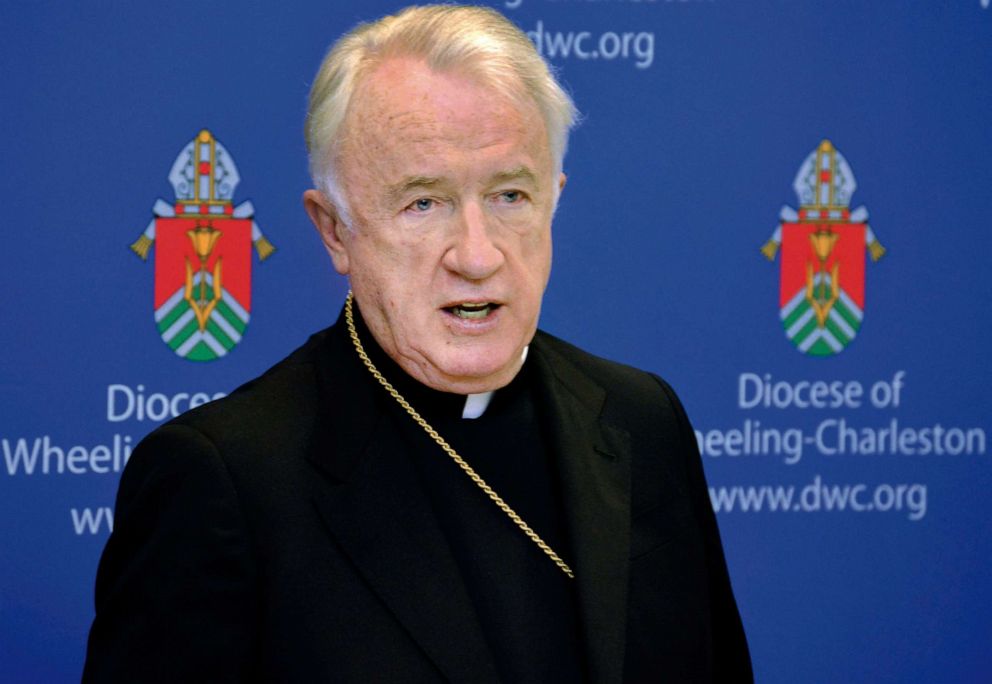West Virginia attorney general 'disappointed' in level of church’s cooperation with sexual abuse probe
Patrick Morrisey said that the church is not producing documents.
West Virginia’s attorney general says church leaders in his state are withholding information that could prove useful in his fight to expose what he called “a history of secrecy and concealment” within the Catholic Church on alleged sexual abuse by members of the clergy.
In a recent interview with ABC News, Attorney General Patrick Morrisey, a Republican who has served as the state’s top law enforcement official since 2013, expressed concern that even after two subpoenas and a lawsuit, the state's diocese of Wheeling-Charleston has yet to make a number of relevant documents available to his office.
“That’s not the kind of transparent process that West Virginians deserve, and the church can and should do better than that,” Morrisey told ABC News. “Those are actions that disappointed me. It disappointed me as the state’s attorney general, and it disappointed me as a Catholic.”
The push by the attorney general comes amid a turbulent time for the church, which is battling numerous sexual abuse scandals.
West Virginia is one of several states to probe abuse allegations in their local dioceses in wake of the Pennsylvania grand jury report detailing a massive cover-up of clergy abuse allegations by the Catholic Church. Investigations are currently underway in Arkansas, Colorado, Delaware, Florida, Illinois, Maryland, Michigan, Missouri, Nebraska, New Jersey, New Mexico, New York, Pennsylvania, Vermont, Virginia, the District of Columbia and the Archdiocese of Anchorage in Alaska.
Spokespersons for attorneys general in several other states, including West Virginia, told ABC News that their offices did not have the power to launch statewide investigations across multiple jurisdictions. Instead, they could only take cases referred to them by local prosecutors.
But Morrisey took a more creative approach, filing a consumer protection complaint alleging that the Diocese of Wheeling-Charleston “engaged in unfair or deceptive acts or practices by failing to disclose to consumers of its educational and recreational services that it employed priests and laity who have sexually abused children.” That suit, he said, in the absence of a statewide investigation, could “bring a lot of information to light.”

He cited the “robust” civil enforcement tools at his disposal in the discovery process — including the ability to compel witness testimony — that could ultimately offer victims a measure of transparency he says the church has so far proved reluctant to provide.
And he “certainly wouldn’t be surprised,” he said, if the names of additional allegedly abusive priests were revealed in the process.
According to a source familiar with the case, Morrisey's office requested but did not receive a number of requested records -- most notably copies of all complaints (credible or not) against priests and others in the diocese.
However, it remains unclear whether all relevant records have been produced because the diocese recently added nine names to its initial list of 31 credibly accused priests, some of whom had not been previously known to the attorney general. It was unclear how many complaints that were deemed not credible were filed.
The office also requested copies of medical records for all priests who had been accused or suspected of sexual abuse, the source said, looking for individuals who had been sent to treatment facilities -- an indication that church leaders had some concern about the priest’s fitness for ministry.
And finally, the office pushed for the release of the full report compiled by Archbishop William Lori of Baltimore -- who oversees the diocese. The report was submitted to the Congregation for Bishops about Bishop Michael Bransfield, who resigned last year as head of the Diocese of Wheeling-Charleston amid allegations of sexual misconduct.
When reached for comment by ABC News, a spokesperson for the diocese pointed to a statement issued in May stating that “it is our view that the West Virginia Consumer Credit Protection Act does not pertain to issues outlined in the complaint, and that the action is outside the jurisdiction of the Attorney General.”
“We categorically reject the lawsuit’s assertion that the Diocese is not wholly committed to the protection of children, as reflected in our rigorous Safe Environment Program,” the statement added.
On Wednesday, the diocese, which is seeking to dismiss the suit, released a summary of the investigation’s findings about Bransfield in the form of a three-page letter from Lori.
The letter notes that their investigative team "uncovered a consistent pattern of sexual innuendo, and overt suggestive comments and actions toward those over whom the former bishop [Bransfield] exercised authority," all of whom they say were adults. The investigators maintain that the investigation "found no conclusive evidence of sexual misconduct with minors by the former bishop," but did note that Bransfield "engaged in a pattern of excessive and inappropriate spending," which included renovations of his residence and gift to other members of the clergy -- including Lori himself.

"In the spirit of full disclosure, I feel it necessary to acknowledge that I was periodically a recipient of financial gifts in varying amounts by Bishop Bransfield for various occasions over the years, including my installation as Archbishop of Baltimore in 2012 and annually at Christmas. These gifts totaled $7,500," wrote Lori. "In light of what I have come to learn of Bishop Bransfield’s handling of diocesan finances, I have returned the full amount to the Diocese and have asked that it be donated to Catholic Charities."
Bransfield has not been charged criminally.
The Washington Post, which obtained the full Bransfield report that has not been publicly released, reached Bransfield for comment and he said “none of this is true.”
“Everybody’s trying to destroy my reputation,” Bransfield told The Washington Post.
Morrisey released a statement after Lori’s letter, calling for further disclosures.
“While we appreciate the fact that our investigation and lawsuit is causing the Wheeling-Charleston Diocese to disclose new improprieties about Bishop Bransfield, we believe it is imperative that the Diocese immediately disclose its investigative report about the Bishop,” Morrisey said in the statement.
“It’s time to come clean and release the Bransfield report – and no longer hide pertinent information from our office and the public,” he said in the statement Wednesday.
As Morrisey awaits the judge’s ruling on the church’s motion to dismiss the suit, he said that attorneys general in other states working within similar limitations on their abilities to launch statewide investigations have already taken notice of his approach, hinting that West Virginia might not be unique in this regard for long.
“We’ve expected others will step forward,” Morrisey said, “and look at these kinds of tools.”




